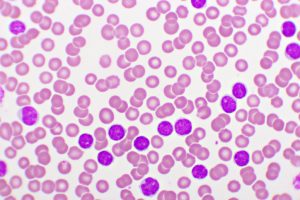CRISPR Therapeutics says the conditioning agent busulfan is unlikely to be the cause of adverse events that prompted Bluebird Bio to halt LentiGlobin trials.
As a medicine busulfan is used to treat chronic myelogenous leukemia. It works by slowing or stopping the growth of cancerous cells.
It is also used in cell and gene therapy as a conditioning agent to destroy bone marrow to prepare patients for transplant.

Image: iStock/jarun011
Busulfan hit the headlines this month after Bluebird Bio started investigating it as a potential cause of acute myeloid leukemia (AML) and myelodysplastic syndrome (MDS) cases in trials of its sickle cell disease candidate LentiGlobin.
Cell therapy sector
The adverse events drew the attention of the wider cell therapy sector according to CRISPR Therapeutics CEO Samarth Kulkarni, who spoke at the Barclays Global Healthcare Conference last week.
He told analysts while CRISPR has seen adverse events in trials of CTX001 – its candidate sickle cell disease therapy – there have been no cases of AML or MDS.
“So far, all the side effects that we’ve seen with CTX001 are all consistent with busulfan conditioning and nothing related to the drug.
“That said, we continue to monitor carefully all the SAEs and effects on patients particularly in light of some reports from other approaches that utilize these transplants like the Bluebird approach where there have been reported cases of MDS.”
Study data
Kulkarni also cited other published reports as an indication that busulfan was not the cause of the events seen in the Bluebird studies.
“We’ve seen number of publications where there is data for 1,200 or 1,900 patients with sickle cell patients got allogeneic transplants and you didn’t observe these kinds of events in such a big data set.
“So we don’t think this is caused by busulfan, especially if you get into the target range of conditioning that you are required to in these patients.”
CRISPR Therapeutics did not respond to a request for comment.
